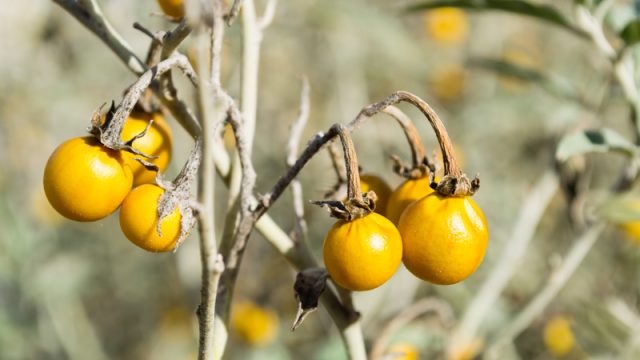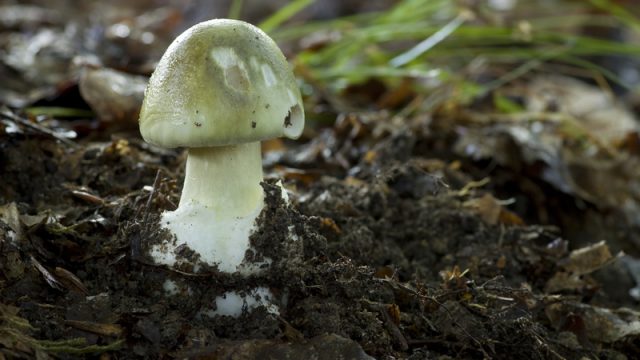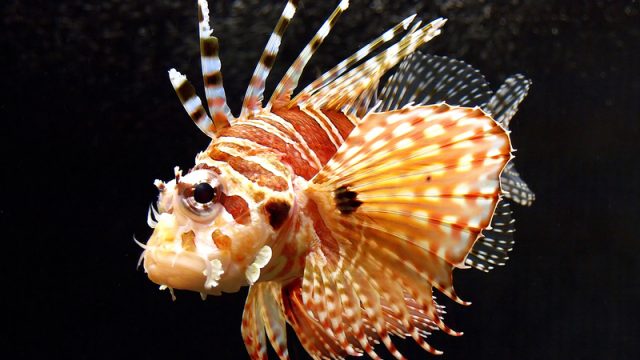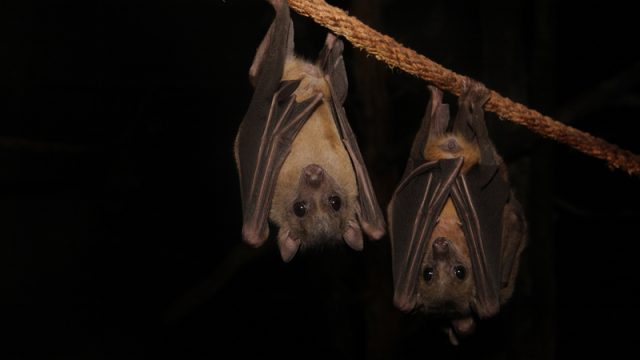
Horse Nettle
Horse nettle fruit is typically yellow or green in color, and shaped like a cherry tomato. It’s especially worrisome if someone stumbles upon it in the winter. During that season, the plant itself is dead, yet its fruit often looks appealing and is still quite juicy. But if you pop one in your mouth, you can be in for abdominal pain and breathing difficulties — certainly not anything to mess with.
Lion Fish
Some 200 lionfish were tested in 2010 by the Food and Drug Administration (FDA) after the NOAA issued its proclamation, and more than 25 percent were found to have unsafe levels of a toxin that can cause ciguatera, a fish-based food poisoning. If you nosh on lionfish, you risk not only the typical food poisoning symptoms (diarrhea, vomiting, fatigue), but also neurological problems. The latter includes tingling in the hands and feet, the feeling that your teeth are loose and a reversed sense of temperature.
Bats
Bats host more viruses than any other mammal on Earth. In fact, it’s believed that the Ebola outbreak of 2014 came from bats in West Africa. The real danger is not so much from eating bats but from being bitten or scratched by them during hunting or from coming in contact with their bodily fluids during cooking and preparation.
That last one may seem like it would be okay to eat however they may be a lot more harmful than you think. This is why we recommend sticking with foods that are safe to hunt, things such as deer, rabbit, squirrel and other large and small game. It also depends on the animals that are native to your area, for example, someone living in Florida could eat a gator and someone in North Dakota could feast on some Buffalo (only in a survival situation please obey all current hunting laws)
This brings us to our final thing to NEVER ever eat from and that is stagnant water! Anyone who remembers high school science knows that stagnant water is a breeding ground for disease!
Stagnant Water
Any pool of stagnant water, or even an area of slow-flowing water, attracts innumerable insects wishing to breed. Top among these are mosquitoes, which are well-known for transmitting serious diseases, such as malaria, dengue and West Nile virus.
Skip the standing water, then, and soldier on until you find a more reliable source of water, like a running stream.
The key is to be aware of what can harm you when out in the wild. Do you have any tips for us on what NOT to eat when out in the wild? If so let us know in the comments below and be sure to share this article to let everyone else know what NOT to eat!




dont eat a lion fish. lol